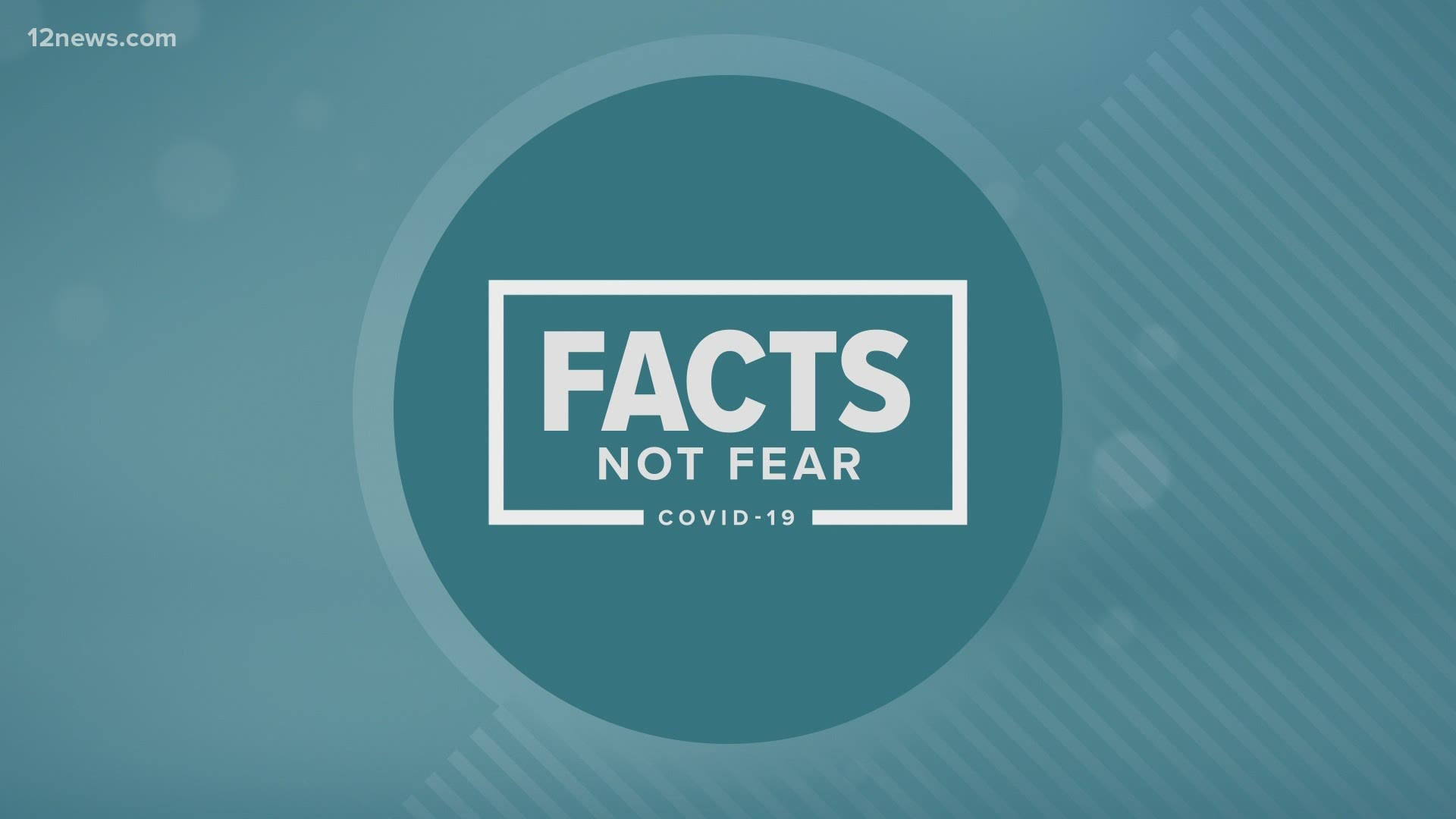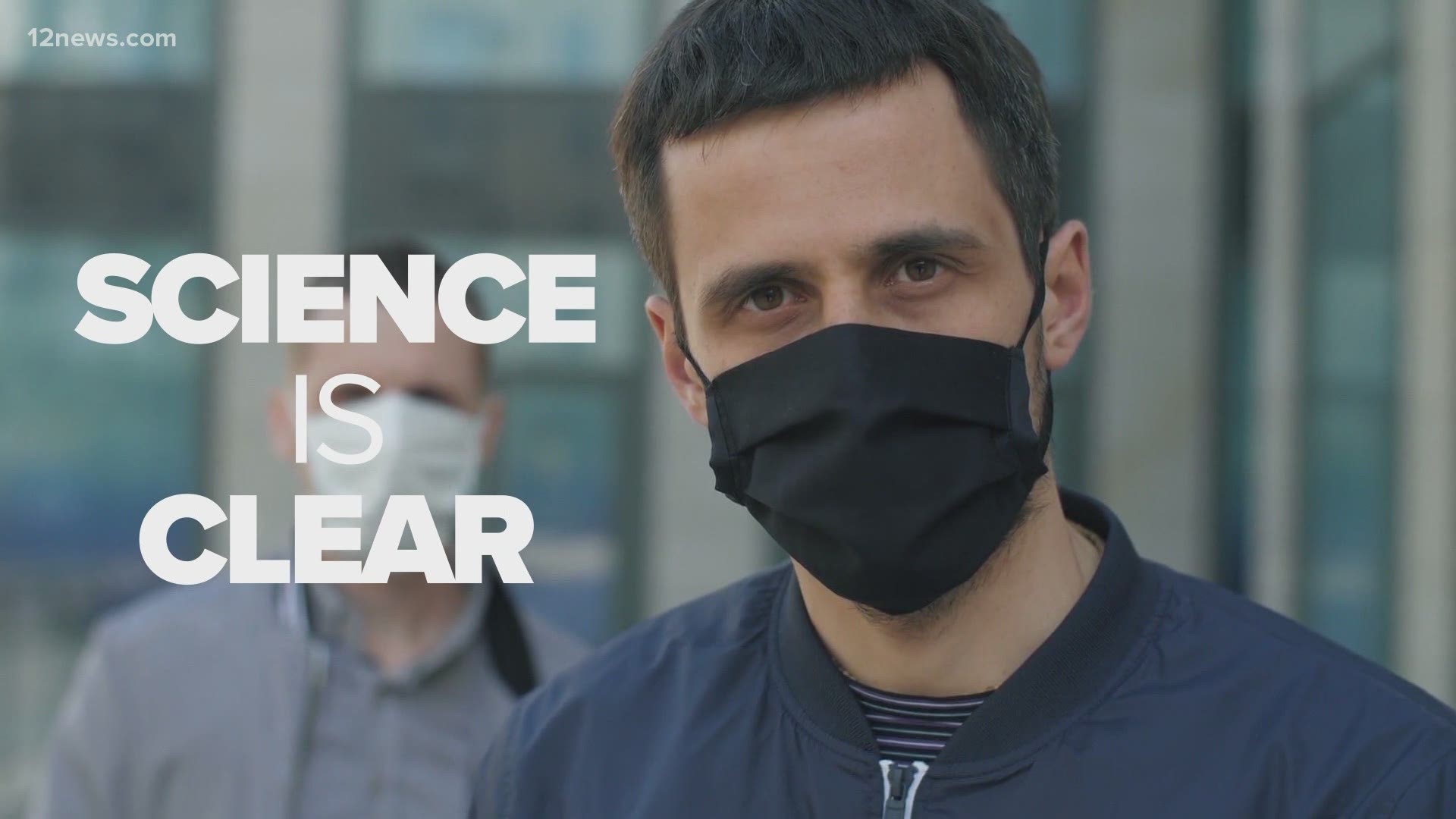KINGMAN, Ariz. — The City of Kingman announced Thursday the citywide requirement for masks to be worn in businesses will be in place until the end of the year to contain the spread of coronavirus.
"As the state and county have seen a downward trend in overall positive tests of COVID-19, with the Labor Day holiday right around the corner, schools opening with hybrid options, and the upcoming flu season, there remains a risk to the well-being of our citizens and additional strain on the healthcare facilities and workers in the City of Kingman," a statement from the city said.
Because of this, Mayor Jen Miles decided to extend the proclamation that requires people to cover their nose and mouth whenever they go into businesses within city limits.
“We are making progress. However, the positivity rates in our county must decline further in order for the Arizona Department of Health Services standards to allow certain businesses in Mohave County to re-open safely. Let’s each do our part to drive down the positivity rate and help them re-open. By wearing masks, we support each other and the efforts of schools and the many businesses whose own policies require face coverings," Miles said in a statement.
The original face mask mandate went into effect on July 1 and was set to expire on Aug. 30. It has been extended to Dec. 31.
People ages six and over must wear a face covering whenever they are in an establishment that serves the public.
Businesses with employees who cannot maintain social distancing or work directly with the public must require employees to wear face coverings.
Businesses also have the right to refuse service to customers not wearing masks.
The City of Kingman is also educating the public and providing face masks when it is possible.
People who are exempt from wearing face covering include:
a. While at an establishment, building or office space that has less than 10 persons provided that Centers for Disease Control and Prevention's (CDC) recommended social distancing is maintained between each person.
b. For those who fall into the CDC's guidance for those who should not wear face coverings, due to a medical or mental health condition or developmental disability.
c. For children under six (6) years old.
d. As part of a religious ceremony or service.
e. For restaurant or similar business patrons while they are eating or drinking. If a patron is not seated at their table or other designated eating area, a face covering is required if social distancing cannot be accomplished.
f. For individuals exercising outdoors, or while walking or exercising with other people who are within a small group of people they are closely and frequently associated with, as long as physical distancing from others is maintained. For individuals congregating outdoors with other people not within a small group of people they are closely and frequently associated with, face coverings are required when physical distancing is not maintained.
g. In settings where it is not practical or feasible to wear a face covering, including when obtaining or rendering goods or services, such as the receipt of dental services, medical treatments or while swimming.
h. When a person is in an office or vehicle (or similar space) where others are not present.
i. For public safety employees and/or emergency responders and/or field employees engaged in essential functions, when wearing the face covering would interfere with or limit their ability to carry out their duties or functions.
j. For individuals complying with the directions of public safety employees.
k. At federal, state, and other Mohave County facilities.
*For the purposes of this order, "place of public accommodation" means facilities, establishments, accommodations, services, commodities, or any use offered to or for use by the general public, including public places where food or beverages are offered for sale, public places operated for temporary lodging, use or accommodation of those seeking health or recreation and all establishments offering such goods or facilities, and entities soliciting patronage from the general public, except for religious organizations.


